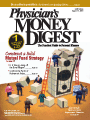Confront the Perils of Retirement Today
Physicians are typically in a worse positionthan other professionals when it comes toretirement planning. Doctors don't usuallyreach their "peak"earning years until they're age 35or older, which gives them less time to accumulatefunds for retirement. In addition, physician incomesare decreasing, which further exacerbatesthe retirement accumulation problem.
PLANNING TRIANGLE
There are 3 objectives that physician-investorsshould consider when planningand executing a retirement plan. The firstobjective is generating income—preferablyguaranteed income. Retirees like toknow that a certain amount of moneywill be coming in every month.
The second objective is creating arainy day fund (ie, setting money asidefor emergencies).The third and final goalphysician-investors should considerwhen planning their retirement is fundinga legacy (ie, leaving funds in yourestate). However, due to current dwindlingretirement funds, a plan that mayhave provided for these 3 objectives 10 years agomay not provide for these goals today.
Thus, many doctors today think that they'regoing to have less money available in their rainy dayfund, leave a smaller estate to their heirs, and pushmore of their assets into the income-generatingmode. Fortunately, physicians can take steps toensure that they have a guaranteed income in retirementwithout abandoning the idea of a reliablerainy day fund and a legacy.
"Living off the principal"may be tough to doin these times. That's why so many retirees shifteverything in their portfolio (or almost everything)toward generating income for current livingneeds. An alternative to such a drastic move isto begin looking at immediate annuitiesto generate income.
Note:
Immediate annuities pay out basedon your life expectancy and are basedon the returns the insurance companycan make on its own money. Theincome stream from an immediateannuity can be higher than what a traditionalinvestment generates. You mayneed fewer assets to generate an incomestream from an annuity than frommutual funds or other market-orientedinvestments. This option shouldbe examined before deciding how youplan to generate your income.
There are also tax benefits with theannuity. Not all of the payments arefully taxable, which reduces tax on theincome and makes the money worthmore. As payments are made from the annuity, aportion of each payment is determined to representa return of your investment, excluding someof the income from current taxation. This wouldnot apply if the income was being generatedthrough IRAs or other qualified money.
In addition, the payments can be guaranteed,so your income stream will not fluctuate withchanges in the market. Although not all of yourincome assets should go into immediate annuities,using the annuity as an income base cangive you assurance that your basic needs will bemet. And since your income is guaranteed, youwon't have to worry about movements in themarket or changes in interest rates.
INSURANCE PROTECTION
Retirees often find that health care expensesincrease as they get older. That's why long-term careinsurance is so important. Yes, you'll have to pay apremium, but it's relatively inexpensive when youcompare it to the potential annual cost of long-termcare. Since you no longer have the ability to generateincome from work, asset protection through thistype of insurance is important.
In better times, the assets used to generateincome would also be planned as part of the estateand serve a dual purpose. If immediate annuitiesare used, the assets will no longer be there for yourheirs. Fortunately, there's an answer: life insurance.Using part of your income stream to fund life insuranceis an inexpensive way to fund your legacy.Depending on your situation (eg, if you're workingwith lump sums), you may want to consider a single-pay life insurance policy. With this type of insurancepolicy, you prepay the amount you will be leavingyour heirs for a percentage of the total.
Providing for retirement in tough times doesn'thave to mean making do with less or leaving behindless. However, it often means that you'll have to bemore creative with the financial tools available. Itmay take a little more work, but it can often be donewithout changing your retirement lifestyle.
Patrick J. Flanaganis
an independent financial
planner based in
Point Pleasant, NJ. He
has been a contributor
to Physician's Money
Digest since it's inception,
and he offers financial planning, insurance,
and investing
services. He welcomes
questions or comments
at 800-969-0899.
